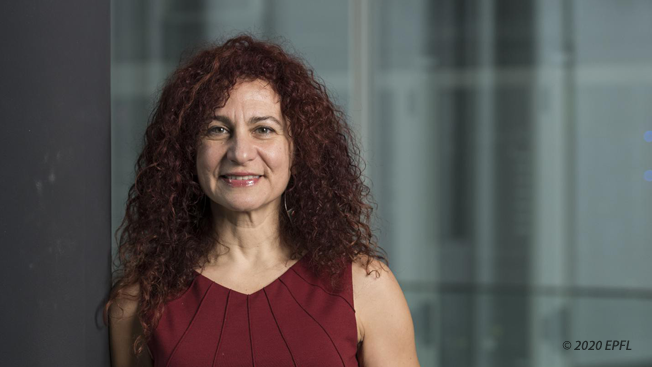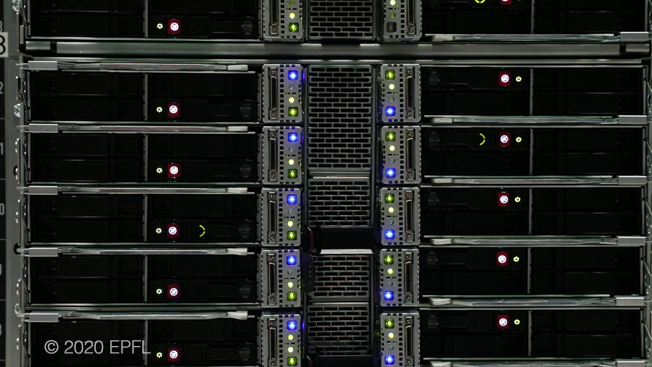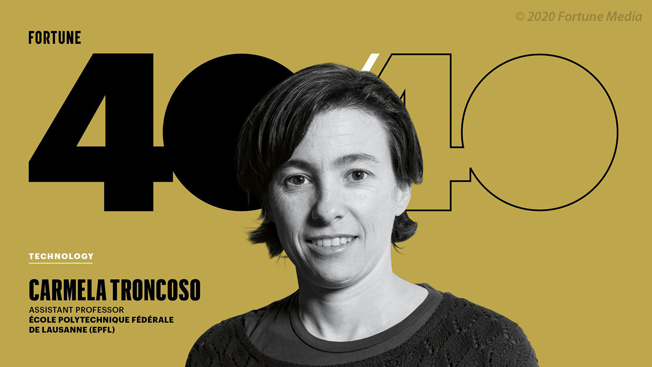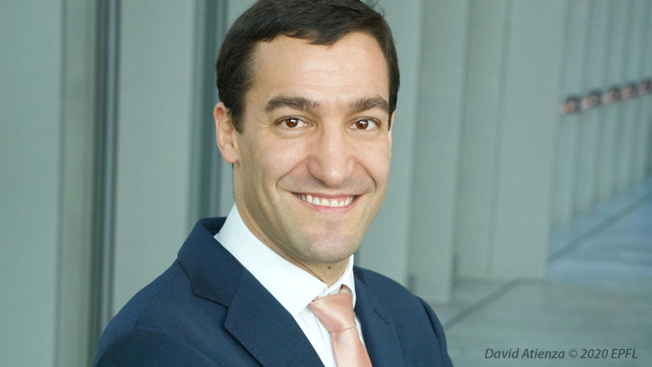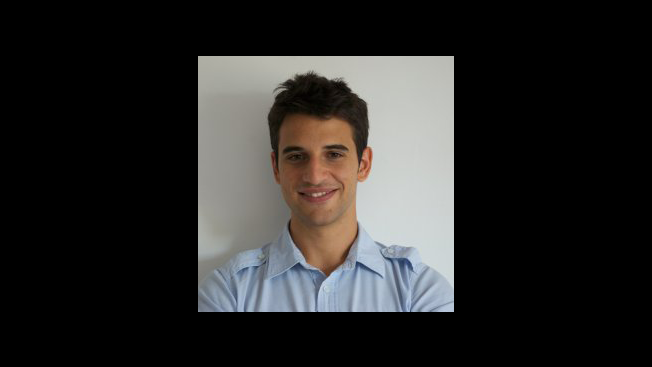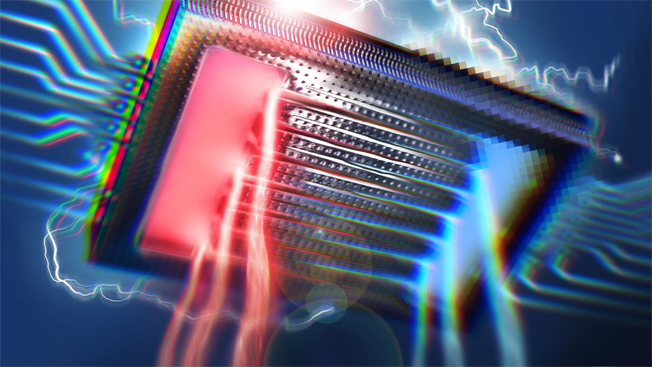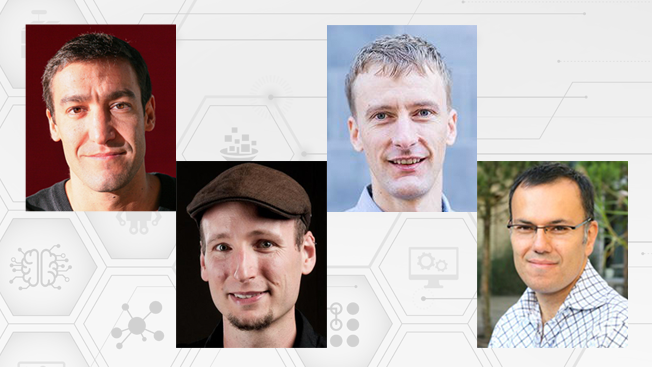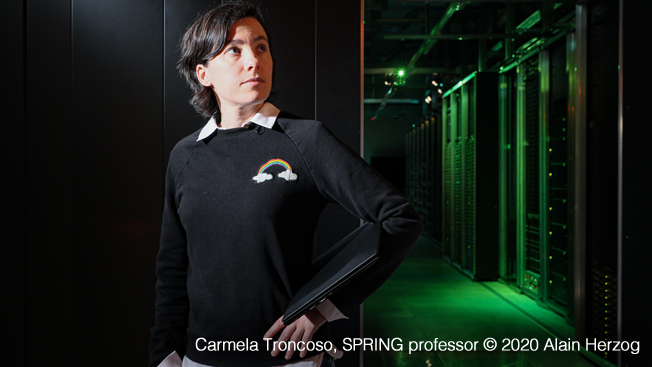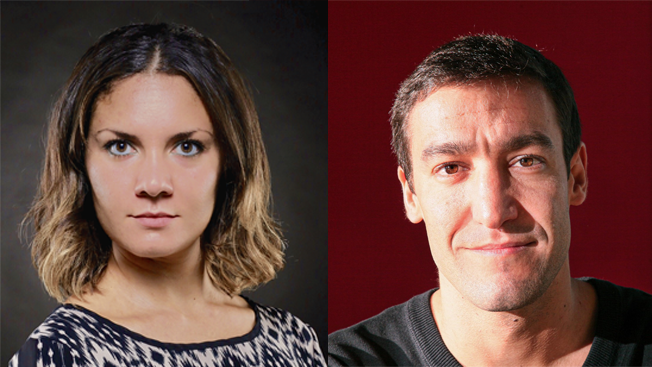In a major recognition of Swiss innovation and excellence in database research, the VLDB Endowment has conferred the prestigious VLDB Women in Database Research Award on Anastasia Ailamaki, EPFL professor and co-founder of Raw Labs.
Read MoreNews
Data Centers Need to Consider their Carbon Footprint
Digital technology is running up against its physical limits. One solution is to build more data centers – but that needs to go hand in hand with a reduction in their carbon footprint.
Read MoreCarmela Troncoso among Fortune’s 40 Under 40
Her inclusion in Fortune’s 40 Under 40 provides Troncoso a platform to showcase the work done by the SPRING lab in alleviating the negative impact of technology on society, such as privacy concerns, and presenting purely system-based solutions rather than data-driven platforms.
Read MoreNovel Frequency Division Technique to Generate Low-Noise Microwave Signals
Researchers at EPFL’s Laboratory of Photonics and Quantum Measurements (K-Lab), Trinity College Dublin (TCD), and Dublin City University (DCU) have teamed up to develop a new technique for generating variable low-noise microwaves with a single optical microresonator. The paper was recently published in Science Advances.
Read More3D-ICE Thermal Modeling Research Wins Retrospective Most Influential Paper Award
Given the fast pace of research, very few scientific studies stand the test of time. Even rarer is a study that continues to influence research a decade after its first publication. That distinction goes to “3D-ICE: Fast Compact Transient Thermal Modeling for 3D ICs with Inter-Tier Liquid Cooling,” a paper presented at the IEEE/ACM International Conference on Computer-Aided Design (ICCAD) 2010 Conference. It has been selected as the winner of the prestigious ICCAD 2020 – Ten Year Retrospective Most Influential Paper Award , which is one the most prestigious given in the Electronic Design Automation (EDA) community about industrial and academic relevance of a technical paper.
Read MoreBlack-box Estimation of the Bayes Risk Using ML Methods
One of the key researches in the domain of quantitative information flow (QIF) is to effectively estimate information leaks in a system in order to prevent adversarial attacks. Most existing approaches are based on the white-box approach. However, this approach is often impractical due to the size or complexity of its internals, or the presence of unknown factors. This and other challenges forced a shift in focus to investigate methods for measuring a system’s leakage in a black-box manner.
Read MoreMicrochannel Network Inspired by the Human Circularity System
While scientists have successfully reduced the size and costs of electronic components, a major challenge faced by such tiny devices is the absence of an optimum thermal and energy management technology. To bridge that gap, Elison Matioli and his colleagues at EPFL’s Power and Wide-band-gap Electronics Research Laboratory (POWERlab) have developed a novel microchannel network that not only cools electronic components but also makes them energy efficient.
Read MoreFacebook-EPFL Joint ML Research Engagement
Facebook and EPFL have initiated a collaborative program that aims to carry out seminal research with common meeting points for both organizations. Facebook seeks to leverage EPFL’s proven expertise in Computer Science and Engineering to enable the flow of technology from one of the most renowned research institutions to the leading American social media conglomerate. The collaboration will also help the latter strengthen its position in Switzerland and gain access to some of the best academic minds in Europe.
Read MoreDatashare Network: A Decentralized Search Engine for Journalists
EPFL researchers at the Security and Privacy Engineering (SPRING) Lab, School of Computer and Communication Sciences (IC), have developed a ‘Datashare Network’ that allows investigative journalists to exchange information securely and anonymously. A detailed paper on the subject will be presented by the scientists at the 29th Usenix Security Symposium (USENIX Security ’20), which will be held online from August 12 to 14. The event, which brings together specialists in the security and privacy of computer systems and networks, will undoubtedly draw worldwide attention to the EPFL research.
Read MoreEPFL Authors Win ISVLSI 2020 Best Paper Award
The paper “Enabling Optimal Power Generation of Flow Cell Arrays in 3D MPSoCs with On-Chip Switched Capacitor Converters” is a collaborative research by Halima Najibi, Alexandre Levisse, Marina Zapater, and David Atienza, who are associated with EPFL’s Embedded Systems Laboratory (ESL). Considering the reputation of the symposium, built over a period of three decades, it is no mean achievement to have a paper accepted and then selected as the Best Paper. Many congratulations to the EPFL authors for their singular academic triumph.
Read More